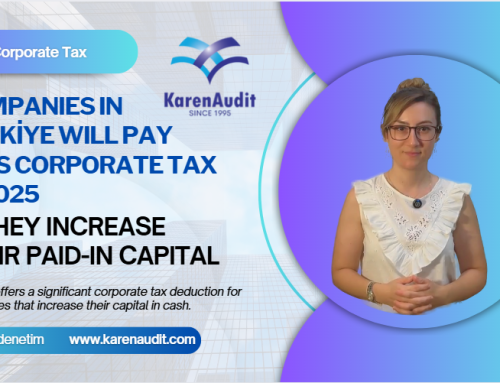December 21, 2022
The Highest and Lowest Corporate Tax Rates in the World
One hundred and forty-two of the 225 separate jurisdictions surveyed for the year 2022 have corporate tax rates at or below 25 percent. One hundred and eighteen have tax rates above 20 percent but below or at 30 percent. The average tax rate among the 225 jurisdictions is 22.22 percent. The United States has the 81st highest corporate tax rate with a combined federal and state statutory rate of 25.81 percent.
The 20 countries with the highest statutory corporate income tax rates span almost every region, albeit unequally. While eight of the top 20 countries are in Africa, Oceania appears only once and Europe twice. Of the remaining jurisdictions, four are in North America, and five are in South America.
| Country | Continent | Tax Rate |
|---|---|---|
| Comoros* | Africa | 50% |
| Puerto Rico | North America | 37.5% |
| Suriname | South America | 36% |
| Argentina | South America | 35% |
| Chad | Africa | 35% |
| Colombia | South America | 35% |
| Cuba | North America | 35% |
| Equatorial Guinea | Africa | 35% |
| Guinea | Africa | 35% |
| Malta | Europe | 35% |
| Sudan | Africa | 35% |
| Sint Maarten (Dutch part) | North America | 34.5% |
| American Samoa | Oceania | 34% |
| Brazil | South America | 34% |
| Venezuela (Bolivarian Republic of) | South America | 34% |
| Cameroon | Africa | 33% |
| Saint Kitts and Nevis | North America | 33% |
| Mozambique | Africa | 32% |
| Namibia | Africa | 32% |
| Portugal | Europe | 31.5% |
| *The normal corporate tax rate is 35 percent, which applies to both Comorian companies and foreign companies deriving Comorian-source income. However, public industrial and commercial enterprises or those where the state or certain public institutions are participants are subject to a corporate tax rate of 50 percent if their turnover exceeds 500 million Comorian francs; see Bloomberg Tax, “Country Guides: Comoros,” https://www.bloomberglaw.com/product/tax/document/25590833704.
Sources: Statutory corporate income tax rates are from OECD, “Table II.1. Statutory corporate income tax rate,” updated May 2022, https://stats.oecd.org/index.aspx?DataSetCode=Table_II1; PwC, “Worldwide Tax Summaries – Corporate Taxes,” 2022, https://taxsummaries.pwc.com/. Bloomberg Tax, “Country Guides – Corporate Tax Rates,” accessed November 2022, https://www.bloomberglaw.com/product/tax/toc_view_menu/3380; and researched individually, see Tax Foundation, “worldwide-corporate-tax-rates,” GitHub, https://github.com/TaxFoundation/worldwide-corporate-tax-rates. |
||
On the other end of the spectrum, the 20 countries with the lowest non-zero statutory corporate tax rates all charge rates at or below 15 percent. Nine countries have statutory rates of 10 percent, five being small European nations (Andorra, Bosnia and Herzegovina, Bulgaria, Kosovo, and Macedonia). The only two OECD members represented among the bottom 20 countries are Hungary and Ireland. Hungary reduced its corporate income tax rate from 19 to 9 percent in 2017. Ireland is known for its low 12.5 percent rate, in place since 2003.
| (Excluding Jurisdictions with a Corporate Income Tax Rate of Zero Percent) | ||
|---|---|---|
| Country | Continent | Tax Rate |
| Barbados | North America | 5.5% |
| Turkmenistan | Asia | 8% |
| Hungary | Europe | 9% |
| Andorra | Europe | 10% |
| Bosnia and Herzegovina | Europe | 10% |
| Bulgaria | Europe | 10% |
| Kosovo, Republic of | Europe | 10% |
| Kyrgyzstan | Asia | 10% |
| Paraguay | South America | 10% |
| Qatar | Asia | 10% |
| The former Yugoslav Republic of Macedonia | Europe | 10% |
| Timor-Leste | Oceania | 10% |
| China, Macao Special Administrative Region | Asia | 12% |
| Republic of Moldova | Europe | 12% |
| Cyprus | Europe | 12.5% |
| Gibraltar | Europe | 12.5% |
| Ireland | Europe | 12.5% |
| Liechtenstein | Europe | 12.5% |
| Albania | Europe | 15% |
| Georgia | Asia | 15% |
| Sources: OECD, “Table II.1. Statutory corporate income tax rate”; PwC, “Worldwide Tax Summaries – Corporate Taxes”; Bloomberg Tax, “Country Guides – Corporate Tax Rates”; and researched individually, see Tax Foundation, “worldwide-corporate-tax-rates.” | ||
Of the 225 jurisdictions surveyed, 16 currently do not impose a general corporate income tax. Except for the United Arab Emirates, all these jurisdictions are small, island nations. A handful, such as the Cayman Islands and Bermuda, are well known for their lack of corporate taxes.
| Country | Continent |
|---|---|
| Anguilla | North America |
| Bahamas | North America |
| Bahrain* | Asia |
| Belize* | North America |
| Bermuda | North America |
| British Virgin Islands | North America |
| Cayman Islands | North America |
| Guernsey | Europe |
| Isle of Man | Europe |
| Jersey | Europe |
| Saint Barthelemy | North America |
| Tokelau | Oceania |
| Turks and Caicos Islands | North America |
| United Arab Emirates* | Asia |
| Vanuatu | Oceania |
| Wallis and Futuna Islands | Oceania |
| Sources: OECD, “Table II.1. Statutory corporate income tax rate”; PwC, “Worldwide Tax Summaries – Corporate Taxes”; Bloomberg Tax, “Country Guides – Corporate Tax Rates.”
Notes: *Bahrain has no general corporate income tax but has a targeted corporate income tax on oil companies, which can be as high as 46 percent. See Deloitte, “International Tax – Bahrain Highlights 2022,” last updated January 2022, http://www2.deloitte.com/content/dam/Deloitte/global/Documents/Tax/dttl-tax-bahrainhighlights-2022.pdf. In Belize the corporate tax rate is 40% but as this rate applies only to the petroleum industry, the corporate tax rate in Belize has been included in this database as 0% to ensure consistency of treatment across all jurisdictions. See OECD, “Corporate Tax Statistics: Fourth Edition”, November 2022, https://www.oecd.org/tax/tax-policy/corporate-tax-statistics-fourth-edition.pdf. The United Arab Emirates is a federation of seven separate emirates. Since 1960, each emirate has the discretion to levy up to a 55 percent corporate tax rate on any business. In practice, this tax is mostly levied on foreign banks and petroleum companies. For more information on the taxation system in the United Arab Emirates, see PwC, “Worldwide Tax Summaries – Corporate income tax (CIT) rates.” |
|
Source: Tax Foundation
Legal Notice: The information in this article is intended for information purposes only. It is not intended for professional information purposes specific to a person or an institution. Every institution has different requirements because of its own circumstances even though they bear a resemblance to each other. Consequently, it is your interest to consult on an expert before taking a decision based on information stated in this article and putting into practice. Neither Karen Audit nor related person or institutions are not responsible for any damages or losses that might occur in consequence of the use of the information in this article by private or formal, real or legal person and institutions.






